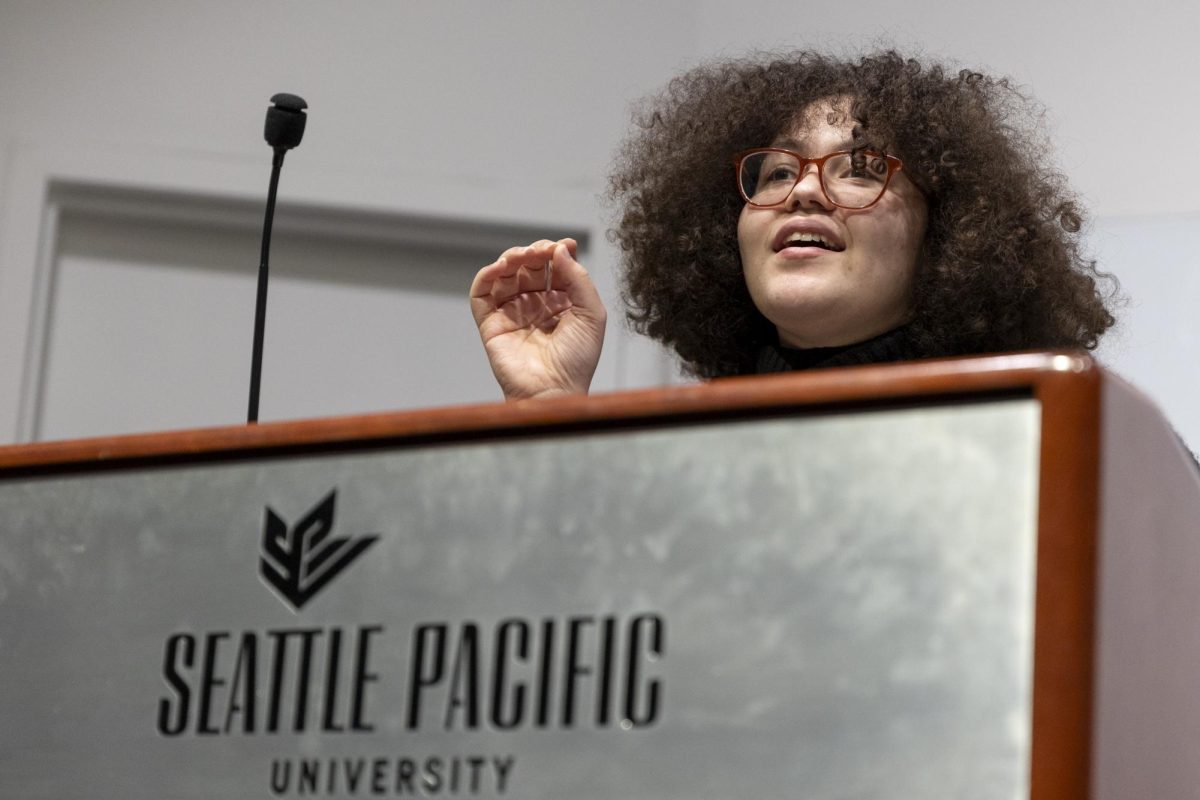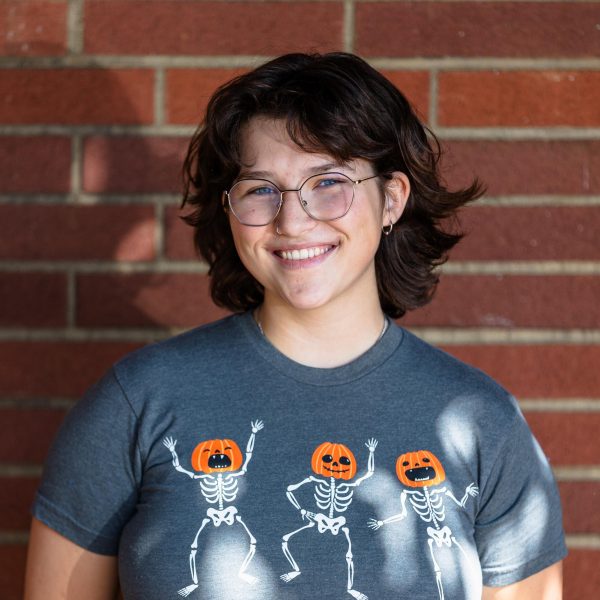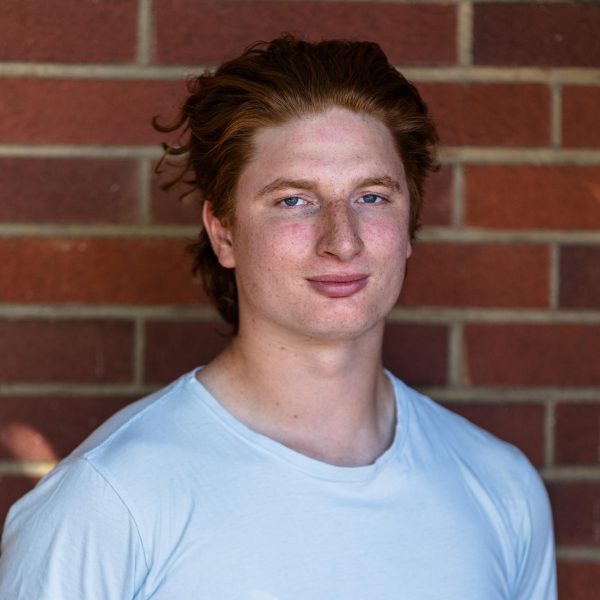
(Rio Giancarlo)
Esther Smith, a sophomore politics, philosophy and economics major, was officially voted into ASSP presidency for the 2024-25 academic school year on Feb. 14, 2024. As student body president, her platform includes increasing diversity and multi-ethnic programs on campus, running alumni events and increasing resources for current students and student groups.
In a feat of scheduling, Smith, Carrie Cox, and Rayna Martin of the Associated Students of Seattle Pacific are in the same room for a conversation about leadership. Laughing as they clamber onto tables in an empty classroom, Cox, 2022’s ASSP president, moves to the left. Martin, 2023, sits criss-cross-applesauce to the right, and Smith, 2024, settles in the center.
“What trait makes a president great?” is the first question put to all three.
The room is silent as they think. Martin, senior PPE and honors double major, decides on “Representative” — not only of herself, but of the students who voted her in.
“You need to make sure you are carrying as many opinions on your shoulders as possible, then pass them along to the people who need to hear them,” Martin says. “That can be painful.”
Cox, senior mechanical engineering and Honors double major, says “Genuine.”
“When I was on the Presidential Search Committee last year to pick our new university president, I was with some board members who, on paper, would not like me,” Cox says. “I’m an openly lesbian person on campus, and we know how our board feels about queer people.”
The Board of Trustees faced extreme controversy and criticism when they upheld SPU’s anti-LBGTQ+ hiring policy, swimming through various lawsuits and protests. ASSP spearheaded many on-campus efforts to change the policy and represent queerness on campus.
“How do you get a room full of those people to listen? You convey your whole self with as much honesty as you can,” Cox says. “You get them to see the person that you are beyond this idea of your identity.”
It is Smith’s turn to answer: “Well-slumbered,” she jokes.
“Integrity is the word I’m really thinking about,” Smith says. “You can’t be a different person on paper than you are with students or with faculty.”
ASSP has been largely affiliated with activism surrounding the board’s decisions, pride flags and affirming posters dotting every inch of space in their Student Union Building-based office. For Smith, priorities are different from those of her predecessors, having not experienced the protests at all.
“[I’m a] straight mixed woman,” Smith says, gesturing to herself. “My focus is more geared towards the black student’s need and voice. That’s my peer group, that’s what I hear most about.”
The LGBTQ+ controversy is not in the past for Smith, but there are a plethora of other issues at SPU that she prioritizes.
“I’m thinking about why our staff and faculty don’t actually represent or look like their students. I’m thinking about why we need to go to several different places to figure out financial aid, or class, or this and this and this,” Smith says. “I need to know all [student] needs, not just one issue.”
Cox and Martin labored in their presidencies to open up spaces of deliberation and decisions for student leaders seeking change. Martin meets with upper administration frequently and, in September 2023, was the first ASSP president in two decades to present to the faculty senate.
“I want that space to be open for Esther to talk about anything she wants to, even if that’s not queer activism,” Martin says.
Progress is slow on the institutional level. Cox and Martin made specific efforts to redelegate on-campus activism and efforts to change the Board’s decision outside ASSP, into student clubs like Haven, SPU’s LGBTQ+ club.
“Activism is going to be more sustainable when you spread it out across a larger group of people. Especially with the board not changing its decision as I was entering office, I flipped a switch in my head,” Cox says. “I need to set us up for the next thirty years in the timeline, rather than just the next two or three.”
Martin sits, thinks, then says something that surprises everyone:
“It’s like in ‘Lord of the Flies!’”
Martin does not insinuate that ASSP is a group of young boys stranded on a deserted island but references the conch shell used by characters in William Golding’s novel to decide who spoke when.
“In the past for us, it’s been, ‘Okay, everyone give the person with the conch the things you want them to say, then while they have the conch for three minutes, they need to say absolutely everything’,” Martin says to a knowing laugh from Cox. “We’re trying to get to where we can pass the conch around like they do in the beginning of the book when they’re not killing each other.”
Essentially, communication, respect and accessibility are key. Not murder.
“I want to be remembered as the president who brought hope to campus,” Smith finishes. “Every springtime, we see a glimpse — I don’t know if it’s hope or joy, but I want that year-round.”


















































































